What You Should Know About COVID-19 Corona Virus
I believe the next few weeks are crucial for optimizing your immune system to prevent the onset or dramatically reduce, the intensity and duration of this highly contagious and rapidly spreading virus. The spread of COVID-19 is inevitable! Be prepared.
Coronaviruses (CoV) are a large family of viruses that cause illness ranging from the common cold to more severe diseases such as Middle East Respiratory Syndrome (MERS-CoV) and Severe Acute Respiratory Syndrome (SARS-CoV). A novel coronavirus COVID-19 is a new strain that has not been previously identified in humans.
The coronavirus gets its name from the crown-like spikes on its surface, according to the CDC. (Corona is Latin for crown.) Including the newly identified form of the virus, there are a total of seven coronaviruses that can infect humans, the CDC says.
A newly identified coronavirus SARS-CoV-2 is spreading across the globe. Here’s what you need to know about the virus and the disease it causes, called COVID-19
The Wuhan coronavirus is currently thought to be more mild than SARS and MERS and takes longer to develop symptoms. common signs of infection include respiratory symptoms, fever, cough, shortness of breath and breathing difficulties. In more severe cases, infection can cause pneumonia, severe acute respiratory syndrome, kidney failure, and death.
As of 4 March, the global death toll was 3,190, while more than 93,000 people have been infected in more than 80 countries. The death toll has passed 3,000 in China, where there have been over 80,000 cases. South Korea, the nation worst hit by the outbreak outside China, has had 5,328 cases. More than 44,000 people in China have recovered from Covid-19.
The mortality rate is around 2% in the epicenter of the outbreak, Hubei province, and less than that elsewhere. For comparison, seasonal flu typically has a mortality rate below 1% and is thought to cause about 400,000 deaths each year globally. Sars had a death rate of more than 10%.
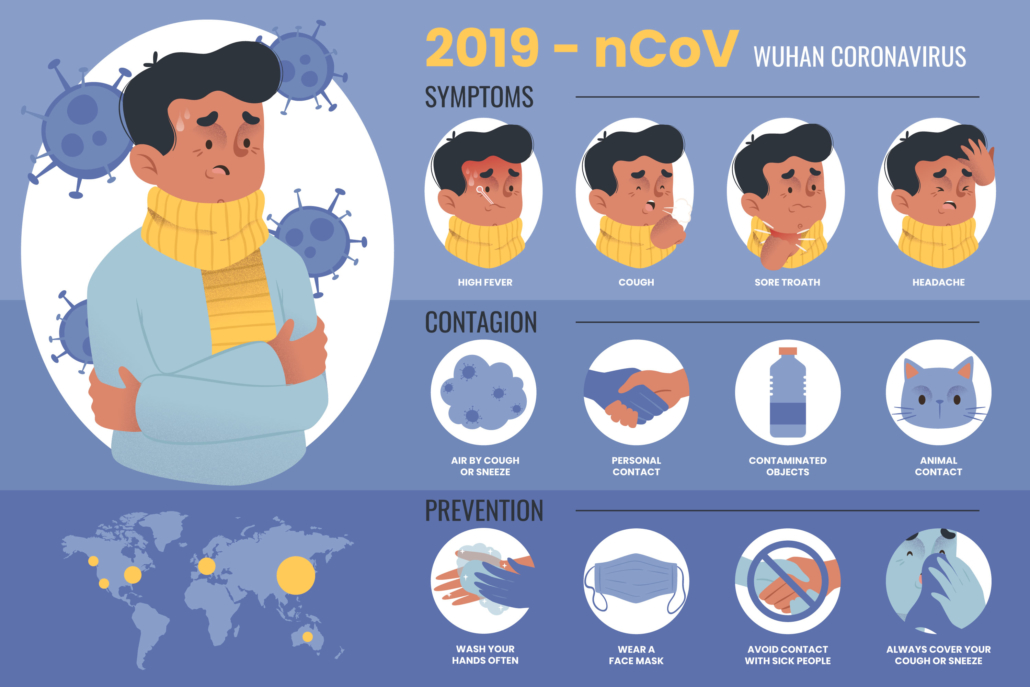
Transmission
Coronaviruses in general are spread through close contact — a range of about 3 to 6 feet. The virus is primarily spread through a sick person coughing or sneezing on someone.
The virus can also be transmitted by touching something an infected person has All the surfaces where these droplets land are infectious for about a week on average – everything that is associated with infected people will be contaminated and potentially infectious.
The air will not infect you! This virus only has cell receptors for lung cells (it only infects your lungs) The only way for the virus to infect you, is through your nose or mouth via your hands or an infected cough or sneeze onto or into your nose or mouth. Do not touch your face. Touching your face with contaminated hands will put you at risk of developing this virus. Keep your hands away from your face!
Prevention
Experts are reporting that COVID-19 has an affinity for pulmonary receptors that is extraordinary. Anyone with a compromised immune system or an ongoing respiratory illness (asthma, COPD, bronchitis, etc.) should take action NOW!!!
Here are some preventative measures that you should keep in mind:
- Don’t shake hands! Use a fist bump, slight bow, or nod, etc.
- Use your knuckle, elbow or gloved hand to touch light switches, elevator buttons, etc. Lift the gasoline dispenser with a paper towel, shirtsleeve wrapped hand or use a disposable glove.
- Open doors with your closed fist, elbow, foot, or hip – do not grasp the handle with your hand, unless there is no other way to open the door.
- Use disinfectant wipes at the stores when they are available, including wiping the handle and child seat in grocery carts. And
- Wash your hands with soap for 10-20 seconds and use throw away paper towels. This is the gold standard! If you’re out of the house and come into contact with others, then wash your hands several times a day. If you can’t use soap and water then use a 60% or greater alcohol-based hand sanitizer. But as soon as you can wash your hands with soap and water!
- Keep a bottle of sanitizer with you at all times-purse, briefcase, car, etc. and use frequently.
- If possible, cough or sneeze into a disposable tissue and discard. Use your elbow only if you have to. The clothing on your elbow will contain infectious virus that can be passed on for up to a week or more! As soon as possible wash any clothes you feel have been contaminated.
- Consider using latex or nitrile latex disposable gloves for use when going shopping, using the gasoline pump, and all other outside activity when you come in contact with contaminated areas.
- Surgical masks won’t prevent you from catching COVID-19, but they are helpful in preventing you from touching your nose and/or mouth. The mask will not prevent the virus in a direct sneeze from getting into your nose or mouth – it is only to keep you from touching your nose or mouth. It does help those who are infected not to spread the virus.
- Keep your stress to a minimum. Stress is THE catalyst for disease! Get plenty of rest. Don’t over do it. Stay hydrated. Drink lots of water-half your weight in ounces.
- Avoid sugar! Sugar lowers your immune system-same for alcohol. Sugars and other simple carbohydrates result in a 50% reduction of white blood cell activity for up to five hours.
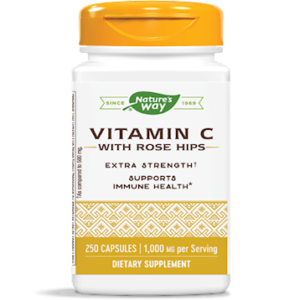 Here Are The Supplements I Recommend You Stock Up On And Use As A Preventative Measure And For Acute Treatment Of COVID-19 Virus
Here Are The Supplements I Recommend You Stock Up On And Use As A Preventative Measure And For Acute Treatment Of COVID-19 Virus
-
Vitamin C – Vitamin C is perhaps the number nutrient your body needs to prevent and counter the COVID-19 virus!
The Chinese government is using intravenous and high oral vitamin C to prevent and treat acute COVID-19 virus. 50 tons of vitamin C was delivered to Wuhan providence.You can read about this here https://tinyurl.com/tnxun4h
FOR IMMEDIATE RELEASE
Orthomolecular Medicine News Service, Mar 3, 2020
Shanghai Government Officially Recommends Vitamin C for COVID-19
by Andrew W. Saul (OMNS Mar 3, 2020) The government of Shanghai, China has announced its official recommendation that COVID-19 should be treated with high amounts of intravenous vitamin C. (1) Dosage recommendations vary with severity of illness, from 50 to 200 milligrams per kilogram body weight per day to as much as 200 mg/kg/day.
“Intravenous vitamin C is a safe, effective, and broad-spectrum antiviral.”
Richard Z. Cheng, MD, PhD, a Chinese-American specialist physician, has been working closely with medical and governmental authorities throughout China. He has been instrumental in facilitating at least three Chinese clinical IV vitamin C studies now underway. Dr. Cheng is presently in Shanghai continuing his efforts to encourage still more Chinese hospitals to implement vitamin C therapy incorporating high oral doses as well as C by IV.
Dr. Cheng and Dr. Yanagisawa both recommend oral vitamin C for prevention of COVID-19 infection. An official statement from Xi’an Jiaotong University Second Hospital (2) reads:
“On the afternoon of February 20, 2020, another 4 patients with severe new coronaviral pneumonia recovered from the C10 West Ward of Tongji Hospital. In the past 8 patients have been discharged from hospital. . . high-dose vitamin C achieved good results in clinical applications. We believe that for patients with severe neonatal pneumonia and critically ill patients, vitamin C treatment should be initiated as soon as possible after admission. . .early application of large doses of vitamin C can have a strong antioxidant effect, reduce inflammatory responses, and improve endothelial function. . . Numerous studies have shown that the dose of vitamin C has a lot to do with the effect of treatment. . . high-dose vitamin C can not only improve antiviral levels, but more importantly, can prevent and treat acute lung injury (ALI) and acute respiratory distress (ARDS).”
-
-
- Based on a large meta-analysis, regular intake of vitamin C has not been shown to prevent colds but it can shorten the duration of colds (by 8 % in adults and 14 % in children) with slightly less severe symptoms. Athletes who take vitamin C regularly are half as likely to catch a cold as athletes who don’t.
- A 1999 study done on 463 students showed that mega- dosing vitamin C may be helpful in treating you right after the appearance of the symptoms with hourly doses of 1000 mg of Vitamin C for the first 6 hours and then 3 times daily thereafter. Overall, it was reported that cold symptoms in the test group decreased 85 % compared with the control group after the administration of megadose Vitamin C.
- In stressed mice, mega dosing vitamin C helped to prevent from influenza and (H1N1)-induced pneumonia.
- A recent 2020 meta-analysis published on the Journal of Intensive Care showed that 1–6 g of intravenous vitamin C per day shortened the ventilation time on patients needing intensive care on average by 25 %.
-
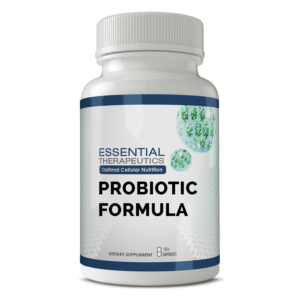 I recommend you begin now and take an extra 3-4 grams of vitamin c each day. At the first sign of infection increase your dose adding additional vitamin C 2-3 grams every few hors until you have a loose bowel movement. Then reduce your dose to bowel tolerance.
I recommend you begin now and take an extra 3-4 grams of vitamin c each day. At the first sign of infection increase your dose adding additional vitamin C 2-3 grams every few hors until you have a loose bowel movement. Then reduce your dose to bowel tolerance.
-
Probiotics – Probiotics are essential for a strong immune system.
This may be due to the role of microbes in our natural defense mechanisms. Humans have a built-in security system called SIgA (secretory immunoglobulin A), which is present in mucosal membranes that line, for example, the nose and upper respiratory tract as well as the gut. SIgA helps prevent cold and u viruses from entering the system. Based on experimental studies, probiotics may provide antiviral effects with two mechanisms: directly in probiotic-virus interaction or via stimulation of the immune system.
Older adults especially benefit from a long-term use of an oral blend of probiotics including Lactobacillus plantarum, Lactobacillus rhamnosus and Bifidobacterium lactis, which enhance secretory immunity and increase IgA antibodies and help reduce the risk of respiratory infections.
I recommend you begin taking a probiotic on a daily basis. Start now to help prevent a viral infection.
-
VITAMIN D – Vitamin D is central to the body’s immune system.
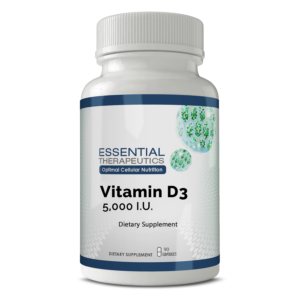 Low levels of vitamin D are associated with increased risk and prevalence for infections in multiple studies.28 In one study among 19 000 subjects, people with lower vitamin D levels were more likely to suffer from upper respiratory tract infections.29 A 2012 study found that giving young children 1 200 IU of vitamin D a day reduced the risk of influenza.
Low levels of vitamin D are associated with increased risk and prevalence for infections in multiple studies.28 In one study among 19 000 subjects, people with lower vitamin D levels were more likely to suffer from upper respiratory tract infections.29 A 2012 study found that giving young children 1 200 IU of vitamin D a day reduced the risk of influenza.
Several systematic reviews of daily vitamin D supplementation have shown it to be protective against respiratory tract infections (RTIs). If you’re already taking vitamin D3 THERE IS NO NEED TO INCREASE YOUR DOSE. If you’re not taking vitamin D3 start now and take 5,000iu a day.
-
ZINC – Use at this first sign of infection! Keep on hand to make sure it is available!
Zinc acetate and zinc gluconate lozenges have been shown to inhibit cold viruses from latching onto the cells and shorten the duration of the u. Lozenges are beneficial only in the early stages of infection. The optimal dose according to studies is 75–90 mg per day divided into multiple doses given 2–3 hours apart. Best results are gained when started within 24 hours of symptoms.52 Do not exceed 100 mg of zinc per day for up to two weeks. Avoid nasal sprays, as they might cause a lingering loss of smell Perception.
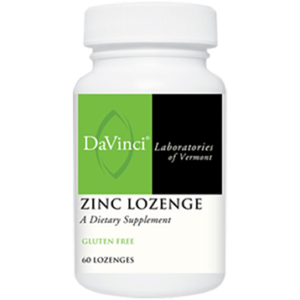 Regular use of zinc may reduce the incidences of flu, especially in children. According to studies in children, regular use of zinc can prevent the flu.
Regular use of zinc may reduce the incidences of flu, especially in children. According to studies in children, regular use of zinc can prevent the flu.
Anti-Viral Herbals – Start taking now to boost your immune system.
-
ELDERBERRIES
Dark pigmented berries have polyphenols and antioxidants that strengthen the immune system by modulating the gut microbiota. Researchers performing in vitro studies have found that elderberry extract is active against human pathogenic bacteria as well as influenza viruses (H1N1). In separate clinical trials in humans, investigators demonstrated that liquid elderberry extract and elderberry extract lozenges each reduced the severity and duration of cold and flu-like symptoms.
Elderberry’s anti-flu effects can be attributed to a couple of primary pathways that work in tandem. One mechanism is a complex process by which the flavonoids bind to proteins on the outside of the virus and prevent its attachment and entry into host cells, thus inhibiting the ability of the virus to replicate and spread. The second is that elderberry is believed to assist in activating the healthy immune system by boosting the production of cytokines, which are essentially messengers that help regulate the body’s immune response to disease. In essence, elderberry targets the virus itself while simultaneously boosting the natural defense mechanisms of the body.
The results of numerous scientific studies appear to support the remarkable antiviral properties of elderberry. One study in particular, published 2004 in The Journal of International Medical Research, has attracted the attention of many in the conventional medical community. This randomized, double-blind study was conducted by a medical school in Israel on sixty patients between the ages of 18 and 54 who were identified in the early stages of influenza infection (within 48 hours of symptom onset). The active treatment group received 15 ml (1 tablespoonful) of elderberry syrup four times daily for 5 days, versus a placebo group which received a syrup identical in every way minus the elderberry extract. The efficacy of the treatment was evaluated by overall wellness as well as specific symptom assessment. The symptoms assessed included: aches and pains, frequency and degree of coughing, mucus discharge, nasal congestion, and quality of sleep.
The results were significant. The elderberry group achieved a designation of “pronounced improvement” after 3 to 4 days while the placebo group only reached this level after 7 to 8 days. Both groups of patients were fully recovered from symptoms after eight days.
In their concluding discussion, the study authors claim that the duration of influenza can be reduced by 3 or 4 days via use of elderberry syrup.
Based on a study done on 60 people, taking 15 ml of elderberry extract 48 hours after the onset of influenza virus A or B can relieve the symptoms on average four days earlier.
-
ASTRAGALUS
Astragalus has been used in Chinese medicine for thou- sands of years. Research shows it protects against gastrointestinal inflammation and has immune system boosting properties. In one study, an herbal tincture of astragalus, echinacea and glycyrrhiza stimulated immune cells within 24 hours of ingestion and remained active for at least 7 days. Test tube studies have shown that Astragalus membranaceus extract activates immune response in macrophages (a pathogen destroying cell in the immune system).
Studies have shown that astragalus has natural antiviral properties and stimulates the immune system, suggesting that it may help prevent colds and similar viral infections. In addition to being one of the best antiviral herbs, astragalus is an adaptogen, an herb that increases the body’s endurance and resistance to a range of biological, chemical, and physical stressors.
As one of the best natural antiviral supplements, astragalus is often used to treat symptoms of acquired immune deficiency syndrome (AIDS), allergies, anemia, colds, fibromyalgia, flu, human immunodeficiency virus (HIV), and upper respiratory infections, and to strengthen and regulate the immune system.
-
OLIVE LEAF EXTRACT
Research and clinical experience to date, shows that supplemental olive leaf extract is beneficial in the treatment and or prevention of conditions caused by a virus, retrovirus, bacterium or protozoan. Among those treatable conditions are: influenza, the common cold, candida infections, meningitis, Epstein-Barr virus (EBV), encephalitis, herpes I and II, human herpes virus 6 and 7, shingles (Herpes zoster), HIV/ARC/AIDS, chronic fatigue, hepatitis B, pneumonia, tuberculosis, gonorrhea, malaria, dengue, severe diarrhea, and dental, ear, urinary tract and surgical infections.
Olive leaf extract (not to be confused with olive oil), contains polyphenols, notably oleuropein and hydroxytyrosol, that have antiviral, antibacterial, anti-in ammatory and antioxidant properties that may reduce upper respiratory infection rates. Based on a randomized controlled trial published in 2019, olive leaf extract decreases the duration of upper respiratory infection in high school athletes.
-
ECHINACEA
Echinacea (Purple coneflower) Echinacea is one of the most popular herbal medicines in the United States and Europe. In 1994, German physicians prescribed Echinacea more than 2.5 million times. There are over 200 journal articles written about Echinacea. This herb is from the sunflower family and can be seen in many perennial gardens across the United States. Echinacea is thought to stimulate the immune system by increasing the production of and activity of white blood cells, especially natural killer cells (NK cells).
Today, people use echinacea to shorten the duration of the common cold and flu, and reduce symptoms, such as sore throat (pharyngitis), cough, and fever. Doctors and herbalists also recommend echinacea to help boost the immune system and help the body fight infections.
A review of 14 clinical trials found that echinacea reduced the odds of developing a cold by 58% and the duration of a cold by 1 to 4 days.
-
GOLDENSEAL
Goldenseal (Hydrastis Canadensis) Goldenseal is a perennial herb native to eastern North America. This herb has shown to be a potent immune stimulator. It increases the blood flow to the spleen and increases the number and activity of macrophages. Macrophages are released in response to foreign substances that invade the body. These white blood cells roam around the body destroying unwanted bacteria, viruses, yeast, and tumor cells.
Goldenseal is a lethal antibiotic/antiviral. Researchers from North Carolina State University’s Microbiology department have found that goldenseal herb inhibits the growth of the H1N1 influenza virus in human cells. The research tested the growth of H1N1 influenza A virus among a variety of cell types, including human lung cells. They found that the application of an alcohol extract of goldenseal to the human cells infected with H1N1 virus stopped the growth of the virus. Goldenseal accomplished this by blocking the virus’ ability to alter and transfer DNA and other protein information – stopping its ability to replicate.
Numerous studies including a study from the University of North Carolina, show that Goldenseal is not only a potent anti viral, it is also effective against several strains of MRSA (methicillin-resistant Staphylococcus aureus) bacteria.
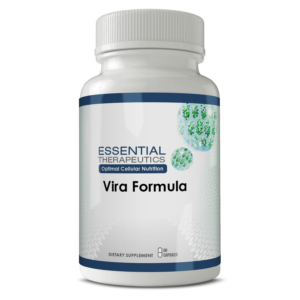 My patients use the Essential Therapeutics Vira Formula which contains all of the herbals listed above. I recommend taking two capsules a day as a preventative measure and tripling the dose (two capsules three times a day) if flu, cold or viral symptoms appear. It is best to stay on this dose until symptoms are fully gone.
My patients use the Essential Therapeutics Vira Formula which contains all of the herbals listed above. I recommend taking two capsules a day as a preventative measure and tripling the dose (two capsules three times a day) if flu, cold or viral symptoms appear. It is best to stay on this dose until symptoms are fully gone.
With the exception of the Essential Vira Formula all the above nutritional supplements are available at most health food stores. You can also purchase from us at the www.yourfibrostore.com and save 15%.
If you’d like to purchase from us and get stocked up (which I highly recommend) then use this code IMMUNE15 to save 15% on any of the supplements mentioned above.
I’m already hearing from vitamin manufacturers that some of these supplements, like vitamin C may become hard to find as the hysteria of Corona virus spreads. It is always best to be prepared ahead of time. Normally, these supplements have a shelf life of one to two years and are good for one year after their expiration date.
P.S. I recommend you start taking vitamin C, vitamin D3, the Vira Formula, and a good probiotic to boost your immune system and help prevent viral infections. At the first sign of infection begin taking zinc as recommended above.
I suggest you stock up on extra supplies mentioned above, especially disinfectants and anti viral supplements.
If you’d like to order from us the make sure you use this code IMMUNE15 so that you can save 15% when you stock up on the recommended anti viral immune boosting supplements mentioned above.
For A Limited Time We’re Offering FREE 15 minute Discovery Consult Calls – Sign up Today!
These patients and hundreds of others who’ve worked personally with me have in fact beaten their fibromyalgia. You can read or listen to their stories by clicking the link below:
|
|







Thanks for this excellent information! (I found you through “The Healing Keys” summit. So glad i followed up by looking at your website!)
Quick question: years ago i heard that you shouldn’t take echinacea on an ongoing basis but that you should take breaks from it so it doesn’t become ineffective. What can you tell me about that?
Thanks again for the great info here!
Really a good info, thanks.